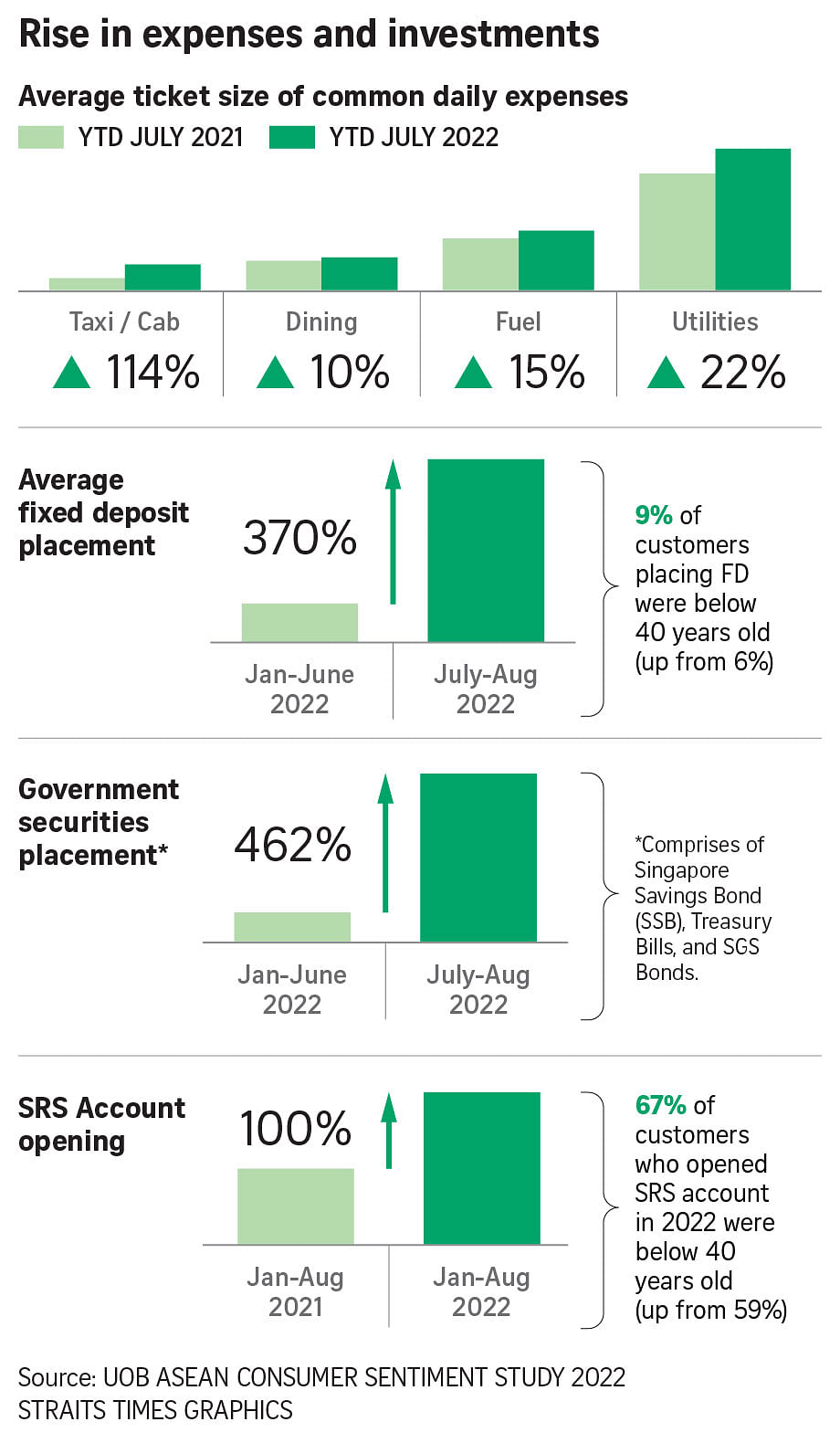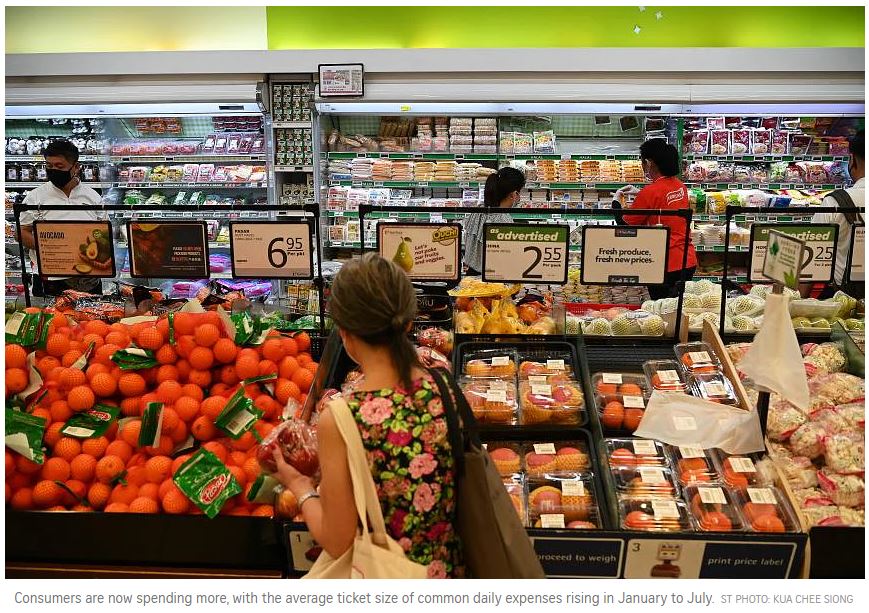70% of Singaporeans concerned about higher household expenses: Study
SINGAPORE – Nearly 70 per cent of Singaporeans are concerned about higher household expenses, according to a recent study by UOB.
This is an increase of 11 percentage points from last year, owing to rising inflation and an uncertain economic climate.
About 70 per cent of Singaporeans also think there is a likelihood of the country entering a recession in the next six months, representing an increase of 7 percentage points from last year.
UOB interviewed close to 3,500 respondents across five markets in June for the third edition of its annual survey. These include more than 1,000 Singaporeans of varying age groups and levels of affluence.
Consumers’ main priorities are having sufficient savings, planning ahead for retirement, and being able to afford essential items for themselves and their families, the study showed.
Ms Jacquelyn Tan, UOB’s head of group personal financial services, said consumer spending has returned to pre-pandemic levels amid the reopening of economies globally. This comes after several years of higher savings as Covid-19 snuffed out travel.
“If you look at the fourth quarter, spending will continue to go up because of the festive and travel season that’s coming up, but I think it will normalise to a certain level because this is also a savings market that we have seen overall,” she told reporters on Wednesday.
Consumers are now spending more, with the average ticket size of common daily expenses rising in January to July, compared with the same period last year and taking into account inflation.
The average amount paid for a taxi ride surged 114 per cent. The increase was 22 per cent for utilities, 15 per cent for fuel and 10 per cent when it came to dining expenses.
But Singaporeans are also planning ahead — for example, by growing their money through investments and protecting themselves from unforeseen events through insurance.
UOB customers’ average placement in fixed deposits — interest rates have risen for these products across banks in recent months — soared by 370 per cent in July and August versus the first six months of 2022.
Purchases of government securities such as Singapore Savings Bonds and Treasury bills surged 462 per cent in the same time frame.
Meanwhile, the take-up of insurance policies grew 20 per cent so far this year, compared with the same period last year.

Ms Tan said: “Jobs and employment were also a top consideration (among respondents), besides finances. Covid has taught us that you need to plan for unforeseen circumstances.
“Your job might (be) displaced because of a certain industry that you’re in, or your income might (be) cut.”
It is important for consumers to save at least three to six months of their income, she said, adding that they also have to safeguard and protect themselves and their families before taking market opportunities.
But she noted that it is also important to invest as a person’s savings will otherwise be eroded by inflation.
Consumers are also concerned about their mortgage payments amid the rising interest rate environment, said Ms Tan.
She added: “If you own a property and you’re servicing a mortgage loan, make sure you consider how to service it for the next one year. You can also do some simulations of your monthly commitments at higher rates.”
Source: https://www.straitstimes.com/business/economy/70-of-singaporeans-concerned-about-higher-household-expenses-study


 English
English




